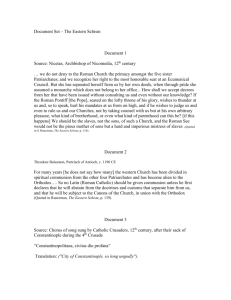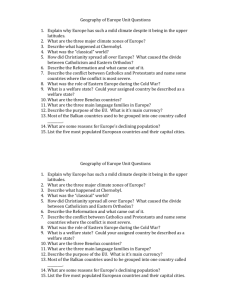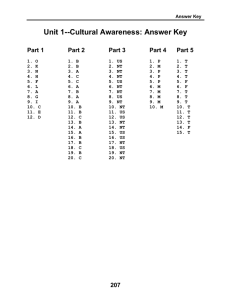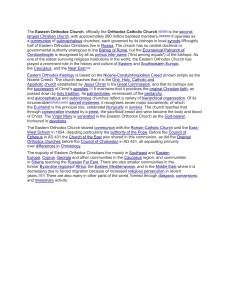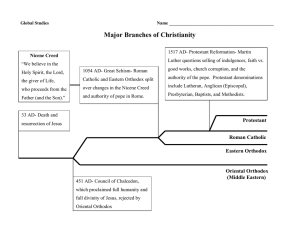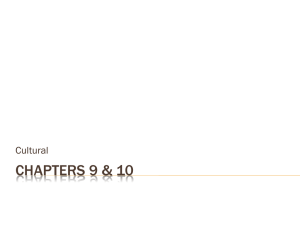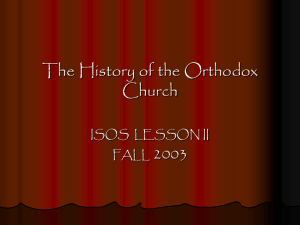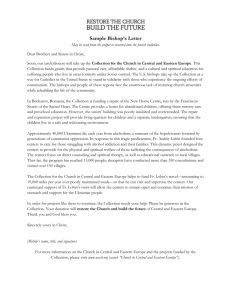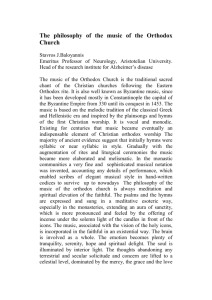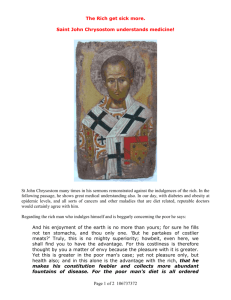3 Main Branches of Christianity
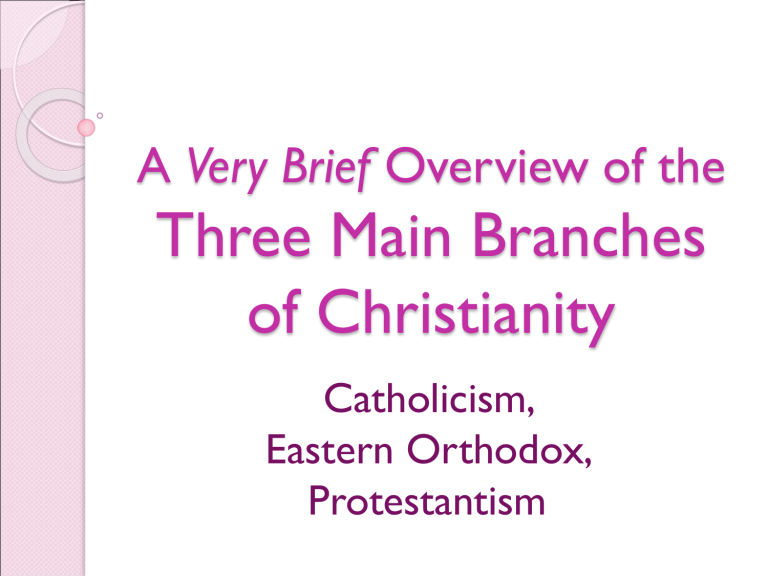
A Very Brief Overview of the
Three Main Branches of Christianity
Catholicism,
Eastern Orthodox,
Protestantism
Catholicism
Also called Roman Catholicism
Dates from the 1 st century CE
Organized by diocese, each headed by a bishop
◦ All report to bishop of Rome (Pope), tradition holds St. Peter was the first
Major challenges to the Church came in 16 th century with the rise of Protestantism.
Catholic response was to correct abuses and reaffirm teachings / doctrines (i.e. the
Council of Trent)
Catholic Beliefs
good works + faith = salvation seven sacraments (vital to salvation)
Eucharist (Communion)—real presence of
Christ entered through transubstantiation
Church is essential to the mediation of
God's love and grace to the world
Priests cannot marry
Belief in the Trinity
Purgatory
Ritual / tradition in services
Eastern Orthodox
Split from the Western (Roman) Church in
1054, when the pope and the patriarch of
Constantinople excommunicated each other.
Today, approximately 150 million to 200 million followers of the Eastern Orthodox
Church.
Balkans, the eastern Mediterranean, and
Russia, and there is a growing population in the United States.
Orthodox Beliefs
Seven sacraments
Bishops must be unmarried or widowed.
Priests and deacons are generally married men.
Four ancient patriarchates of the church:
◦ Constantinople (Istanbul, Turkey),
◦ Alexandria (Egypt),
◦ Antioch (Damascus, Syria),
◦ Jerusalem
Plus 11 others around the world
Each of the churches is governed by a bishop, known as a patriarch, archbishop, or metropolitan.
Although the four ancient patriarchates (esp.
Constantinople) are regarded as the highest, they are all officially treated as having equal weight in the church.
Protestantism
Umbrella term for traditions that came about after the Reformation (1517 =
Martin Luther)
Widespread due to printing press, desire to return Catholic Church to its purer ways
Luther was concerned with papal authority, indulgences, and the Church’s teaching on salvation
Many denominations, many differences!!
Protestant Beliefs
Justification (salvation) by grace (obtained through faith in Christ) alone, not works
(sola fide)
Bible = truth. Church not needed to interpret it
“Priesthood of all believers” means all people have access to God, not just clergy
Services stress Biblical preaching
Generally, reject clerical celibacy
(exceptions, i.e. Shakers)
